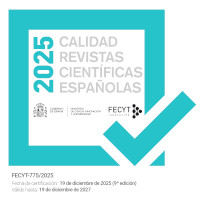The Francoist press during the first phase of the Spanish Transition (1975-1977). The cases of Arriba , Pueblo and El Alcázar
Abstract
During the Spanish transition, the press assumed its role as a political agent in the democratizing process. The official press also did so despite the propagandistic ways that are supposed to it. Thus, the newspapers Arriba and Pueblo, both state-owned, incorporated different ideologies, sometimes contrary to the Government, and even abandoned the propaganda function at certain times. However, another affine press (El Alcázar), rather than abandoning that role, made that demand for the regime’s continuity was its mark of identity during this period, radicalizing its position since Franco’s death. And once with Suárez in power, it became a press contrary to the democratic regime, a newspaper in open opposition to any political reform.Downloads
Download data is not yet available.
Downloads
Published
2016-11-23
How to Cite
Martínez Fábregas, J., & Salgado de Dios, F. (2016). The Francoist press during the first phase of the Spanish Transition (1975-1977). The cases of Arriba , Pueblo and El Alcázar. Textual & Visual Media, 1(9), 195–214. Retrieved from https://textualvisualmedia.com/index.php/txtvmedia/article/view/71
Issue
Section
Articles
























